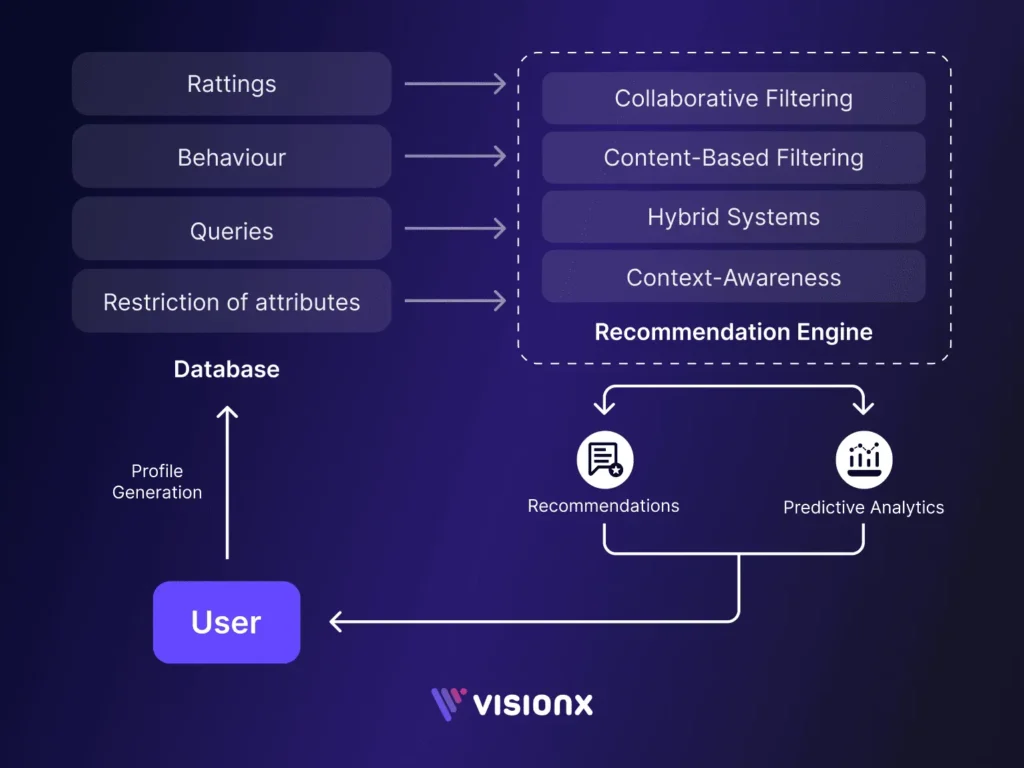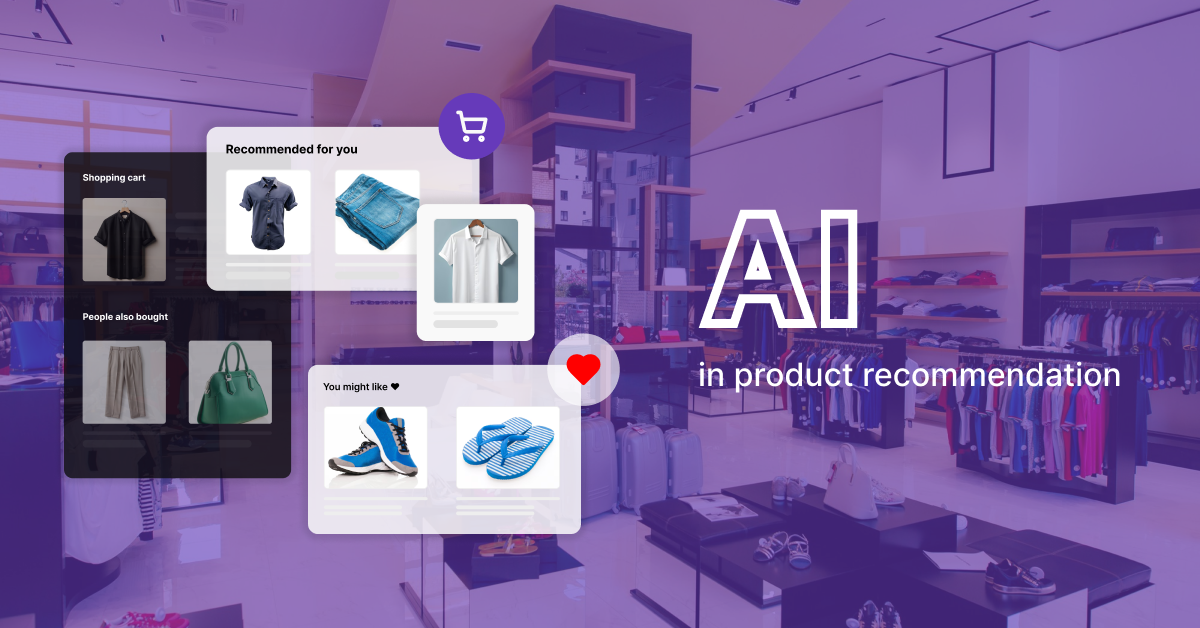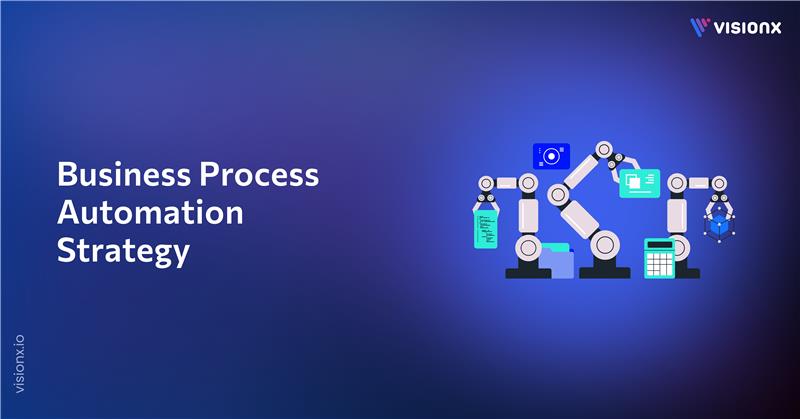If you are an e-commerce store owner, you have just lost a potential sale because the customer failed to get what they needed. Then what if you reversed that? Your website now only shows each customer the products he or she wants or will buy.
This caused a 35% increase in Amazon’s sales and revenues. This is not an unrealistic notion; it is the reality that an AI-powered product recommendation system can create for your company.
This is a huge win for you as a retailer. Most of your competitors might still use the simple “other customers have bought this” AI suggestion to recommend items, but you can utilize AI to engineer how users shop and have a greater chance of keeping them.
Key Takeaways
- AI product recommendations are personalized product recommendations that a customer receives from an AI system based on their past purchasing history and preferences to increase sales and improve customer satisfaction.
- These product recommendation engines improve shopping experiences through real-time updates, cross-selling, upselling, and consistency across web, mobile, and in-store channels.
- Major companies highlight their effectiveness: Amazon generates about 35% of sales from AI-driven recommendations, Netflix attributes nearly 80% of viewing activity to them, and Temu keeps shoppers engaged with social and gamified personalization.
- Generative AI is transforming this space of product recommendation AI by enabling dynamic product descriptions, intelligent chatbots that give contextual suggestions, predictive inventory planning, and adaptive real-time pricing strategies.
- The future of AI-based recommendation systems includes voice-activated shopping assistants, advanced predictive analytics, dynamic discounts and promotions, and emotion-aware AI for highly human-like, personalized interactions.
What is an AI Product Recommendation System?
AI product recommendation system uses artificial intelligence to look at customer behavior, preferences, and purchase history, allowing retailers to deliver personalized product suggestions. The goal of these recommender systems is to increase conversion rates and enhance customer experience.
These AI recommender systems use machine learning algorithms, NLP and data analytics to forecast the items that a user is most likely to buy. These product recommendation engines for ecommerce platforms make recommendations based on real time customer data.
Core components of an AI product recommendation system include:
- Personalization: Personalized product recommendations that improve the shopping experience.
- Dynamic Suggestions: Real-time updates to recommendations as users explore the platform.
- Cross-Selling and Upselling: Personalized recommendations for complementary or premium products.
- Omni-Channel Consistency: Smooth experiences across web, mobile, and physical stores.
These product recommendation systems are not just boosting customer satisfaction (easy shopping and fun shopping), but they also increase sales by making products more discoverable and favorable for purchasing.
AI product recommendation is something all retailers need to keep up with the changing times and remain on top of their game in an online market. Do you want to know how this can work for your retail plan?
How Do These AI Recommender Systems Work?
In order to determine what product draws a particular buyer, an AI product recommender system collects and analyzes real-time customer data.
These AI product recommendation engines interact with ecommerce sites and produce personalized product recommendations based on past consumer behavior and preferences.
AI recommendation algorithms take a bunch of information from your customers’ experiences:
- Purchase history
- Browsing behavior
- Time spent on product pages
- Cart abandonment patterns
- Search queries
- Customer demographics

You have so much more data at your disposal, which can help you know your customers better than ever and automatically make personalized product recommendations for the things that they’re most likely to buy.
E-commerce Personalization Strategies
Here are some best practices for personalization that can have a big influence on your business if you want to use AI product recommendation systems effectively:
- Personalized Product Recommendations:
Increase relevance and engagement by using AI to make product recommendations based on browsing history, past purchases, and personal preferences. These customized recommendations are delivered at scale with the aid of a personalized product recommendation engine.
- Dynamic Landing Pages and Homepages:
Improve the browsing experience by customizing the home page and landing pages to each user’s interests or past activity.
- Email Campaigns Based on Behavior:
Drive conversions by sending out tailored emails in response to actions such as wishlists, abandoned baskets, or product views.
Types of AI Algorithms Used in Recommendation Systems
You’ll find different types of recommendation systems that help you connect users with what they need, so that it improves their experience and increases your business success. Here are some types of AI algorithms used in recommendation systems;
1. Collaborative Filtering
This algorithm of a product recommendation system identifies patterns across your customer base, helping you utilize the collective wisdom of your shoppers. When one customer buys a product, the system can recommend it to similar customers, effectively creating a network effect that increase sales.
2. Content-Based Filtering
By analyzing product attributes and customer preferences, this method helps you maximize your inventory exposure while ensuring relevance. It’s particularly effective for fashion, electronics, and specialty retailers where product attributes matter significantly.
3. Hybrid Systems
Combining both approaches, this recommender system gives you the best of both worlds. They help you balance personalization with discovery, leading to higher average order values and customer satisfaction.
4. Context-Awareness
This approach of AI recommendation engines considers factors like time of day, season, and location, which helps you to optimize your marketing efforts and inventory management based on real-world contexts.
How Generative AI is Reshaping Retail Recommendations?
For retailers, generative AI represents a quantum leap in personalization capabilities. It enables:
- Dynamic product descriptions customized to each customer segment
- Intelligent chatbots that can make contextual product recommendations
- Real-time pricing optimization
- Predictive inventory management
- Personalized email marketing campaigns
Why Is AI So Good at Personalizing Shopping Experiences?
AI has completely changed the retail world by making hyper-personalized shopping possible. By pulling in huge data sets and tailoring them to the consumer, AI allows merchants to offer suggestions that seem custom to the individual. Here’s how AI achieves this:
- Data Analysis: AI analyzes large amounts of customer data and comes up with valuable data on individual interests and buying habits. This helps merchants provide better, more relevant e-commerce product recommendations.
- Pattern Recognition: Using patterns found in customer browsing and purchase history, AI can identify what a customer is most likely to be interested in purchasing next.
- Real-Time Adaptation: AI updates relevant recommendations in real time according to customer behavior, so suggestions do not fade with changing shopping habits.
- Continuous Learning: The more customers shop, the better AI gets at personalized product recommendations. This makes retailers more efficient with their stock levels and sell-through tactics.
- Personal Touch: AI suggests products based on each customer’s specific preferences to provide a personalized shopping experience and build customer loyalty.
Recommendation Engines that Drive Sales and Engagement
AI recommendation engines transform how brands engage with their consumers by providing personalized recommendations to drive more sales and loyalty. The global AI-based recommendation system market size is estimated to be USD 34.4 billion by 2033, and it is clear that the recommendations will be very beneficial in the future of e-commerce.
The following statistics demonstrate the impact of AI product recommendations on the global e-commerce industry.
20%
Increase in Conversions
50%
Higher Revenue
30%
Customer Retention
How AI Recommendations Drive Business Growth?
Implementing AI recommendations helps you:
- Increase average order value through intelligent cross-selling
- Reduce cart abandonment rates with timely suggestions
- Improve inventory turnover with better product exposure
- Enhance customer loyalty through personalized experiences
- Optimize marketing spend with targeted recommendations
How Big Companies Use AI to Drive Sales?
AI-based recommendation engines have proven to be the foundation stone for companies in terms of improving customer engagement and increasing sales. By using more advanced product recommendation algorithms and data insights, companies can provide very personalized experiences.
Here’s how industry leaders such as Amazon, Netflix, and Temu use AI suggestions:
- Amazon uses artificial intelligence to analyze items buyers have viewed and purchased, along with the preferences of similar customers, to generate highly relevant product recommendations. Amazon’s AI product recommendation engine helps drive as much as 35% of the company’s sales. It is like having a personal store assistant who knows what you want.
- Netflix recommends movies and TV series to viewers based on patterns of watching and preferences derived from AI methods. More than 80% of what people watch on Netflix is a recommendation.
- Temu makes shopping personalized and fun with AI. It analyzes your browsing and purchase history to suggest products you’ll like. Plus, it uses social referrals to show items popular among your friends and adds gamification to keep you engaged and entertained. Simple, smart, and enjoyable.
How AI is Fueling Temu’s Product Recommendation?
Isn’t it amazing that Temu seems to read their customers’ minds and know what they need? The secret lies in its AI-powered recommendation systems, which make the shopping experience personalized for everyone. Let’s dive into how it works!
Behavioural Collection and Analysis
Temu’s AI learns about buyers by observing their browsing behavior, purchase history, and time spent engaging with certain products. Based on the pages they visit, time spent on particular products, and previous purchases, the AI can infer what the buyer wants next.
Deep Learning for Pattern Recognition
AI uses a deep learning model to detect the complex relationship between the user and the product. For instance, it can learn what items are bought the most together or what is trending and make advanced product recommendations that will actually appeal to buyers’ interests and increase sales.
Transformer-Based Models for Contextual Understanding
Searches can be tricky, but Temu’s AI uses transformer-based models to make sense of them. They understand what people are looking for; whether they typed something vague or misspelled something, generative AI suggests the right product.
Real-Time Personalization
Temu’s recommendations change with shopping. The customer might put a pair of running shoes in the cart, and AI suggests some athletic wear or water bottles. AI updates its suggestions instantly, making everything relevant to the buyer’s choice.
Optimized Decision-Making Through Reinforcement Learning
Temu’s AI continuously improves its algorithms based on reinforcement learning. It does not stop with just what works today; instead, if a recommendation is not up to mark, it learns and improves in order to do better the next time.
What’s Next for AI Product Recommendations?
AI product recommendations are constantly evolving. Here are some key trends and developments shaping their future:
-
Voice-Activated Recommendations
Shopping via voice command is fast becoming common. AI-enabled assistants such as Alexa and Siri have made their way to a wider audience and are becoming really popular in giving customized, hands-free shopping experiences.
-
Predictive Analytics
Predictive analytics, based on historical data, crunches data and generates predictions about the product or service customers will purchase in the future or the moment when demand is most likely to increase. This data enables retailers to be ahead of the game and stock up on products before they’re out of stock.
-
Dynamic Pricing and Promotions
Dynamic pricing and promotions adjust the price and discount based on demand, competition, or customer actions to achieve the best sales result. This pricing structure is competitive; it’s the right price for the customer and the right amount of profit for the retail industry.
-
Emotion AI
Emotion AI reads the emotions behind facial expressions, voice, or text for a human-like interaction. This may adapt responses in line with the user’s mood. It will become more human-like and emotive if it understands how to present more relevant, comforting suggestions.
Features of AI Product Recommendation Engine
An AI product recommendation engine works best when it knows your users, spots patterns fast, and puts the right products in front of them, at just the right time. Here’s a list of key features that you need to look for in an AI recommender system;
1. Machine Learning
AI-driven machine learning acts like a dedicated shopping assistant, continuously learning from customer interactions. As customers shop and engage, the system refines its understanding of their preferences, allowing retailers to offer increasingly personalized and relevant product suggestions. This leads to higher customer satisfaction and loyalty.
2. Cross-sell and Up-sell Suggestions
AI-powered cross-sell and up-sell suggestions enable retailers to effectively recommend complementary or higher-value products to customers. By intelligently pairing items, retailers can boost the average order value and drive incremental sales without being intrusive.
3. Visual Search
Visual search functionality allows customers to find products using images, making it easier for them to locate items they love but can’t describe. For retailers, this feature can increase engagement and conversion rates by simplifying the search process and catering to customers’ visual preferences.
4. Customer Behavior Analysis
AI analyzes customer behavior, including purchase history and browsing patterns, to identify trends and preferences. Retailers can use these insights to make informed decisions about inventory management, marketing strategies, personalized promotions, optimizing operations, and increasing profit.
VisionX’s Visual Approach to AI Recommendations
VisionX can help with AI product recommendations by using generative AI and computer vision to create highly personalized shopping experiences. Here’s how:
- Image Recognition: Our AI analyzes product images to understand visual preferences, suggesting similar items.
- Custom AI Models: We develop tailored AI models that align with your business goals, ensuring recommendations are spot-on.
- Visual Search: Users can upload product images for inquiries, making the search process more intuitive.
AI Product Recommendation Case Study
How VisionX Empowered a Retailer with an AI-Powered Search Experience?
VisionX partnered with one of the largest brands to create a new search experience that makes users’ shopping experiences better. With a Next.js front-end, we designed a responsive, interactive UI and seamlessly integrated it with a Java back-end to execute the business logic and search’s core functions.
Key Technological Integrations
- CouchDB Database: We chose CouchDB because it is scalable and secure, which means the retailer’s search system can handle huge volumes of data without losing performance.
- AI and ElasticSearch: To improve search accuracy and user satisfaction, we integrated AI with ElasticSearch. This dynamic combination trains models based on user behavior and preferences, offering highly relevant, personalized product recommendations.
Comprehensive Features
Our expertise enabled our client to implement features like filtering and sorting, item search, and browsing across multiple categories, including the Class Page, Category Page, and the specialized Ink and Toner Page. These features ensure precise product matching and a smooth shopping experience for our clients’ customers.
Advanced Architecture
We chose a Search-as-a-Service Architecture and served desktop or API client requests through Akamai CDN, global load balancers, and web servers (Nginx and Apache), finally reaching the Search MMX web app built using Electrode/React.
We provided easy backend integration with the core services Nephos Auth, GP CIS, GP User, and GP PastPurchase, all under the stewardship of the Global Search Engine (GSE). In addition, we included category services (Pumice, GP Category, GP Item) as well as additional modules like OfferLogic and HookLogic.
Personalized Search Flow
The search flow we built is responsive for login and guest users. Registered users get personalized recommendations (last seen items, mini tiles) and recommendations (expert recommendations, most recently bought items, “people like you”). Plus, all the previous purchases are presented to add more convenience. Guest users, on the other hand, benefit from relevant, intuitive suggestions for a seamless experience.
Enhanced User Experience
We ensure that the client’s search platform offers a high-performance, low-latency, AI-enabled, personalized search experience. Using cutting-edge technology and a user-first mindset, VisionX helped the client’s customers enjoy a more engaging and fulfilling online shopping experience.
FAQs
What are AI product recommendations?
AI product recommendations are suggestions provided by artificial intelligence. Such recommendations guide your users to discover products, services, or content that best fit their needs. The AI, based on information about previous behavior, likes, dislikes, and habits, uses data to provide a more precise choice for every decision.
What is a recommendation system?
A recommendation system is a smart tool that assists users in finding what they may enjoy or require. It examines user information, like buying history, clicks, or ratings, and uses that data to recommend the most suitable items for users.
Does Amazon use AI to recommend products?
Yes, Amazon relies on AI integration to improve the shopping experience. It tracks your product views, past orders, and even search terms to suggest items you’re more likely to buy. This helps you find what you want faster and helps Amazon increase sales.
What is an online recommendation engine?
An online recommendation engine is a system that gives users personalized product recommendations while they use a website or app. Whether it's a movie platform, online store, or music app, the engine helps users discover new things without searching too hard.
How to build an AI product recommender system?
To create one, you need a specific objective, quality user information, and a system for filtering out that information. You can implement methods such as collaborative filtering (user-based) or content-based filtering (item-based). Then, test and refine the system so it continually makes improved suggestions and helps you stay ahead of the competition.
What are the benefits of AI product recommendations?
The benefits of AI product recommendations are better customer understanding, an increase in sales or conversion rates, higher customer satisfaction, improved personalization, and optimized customer experience.


